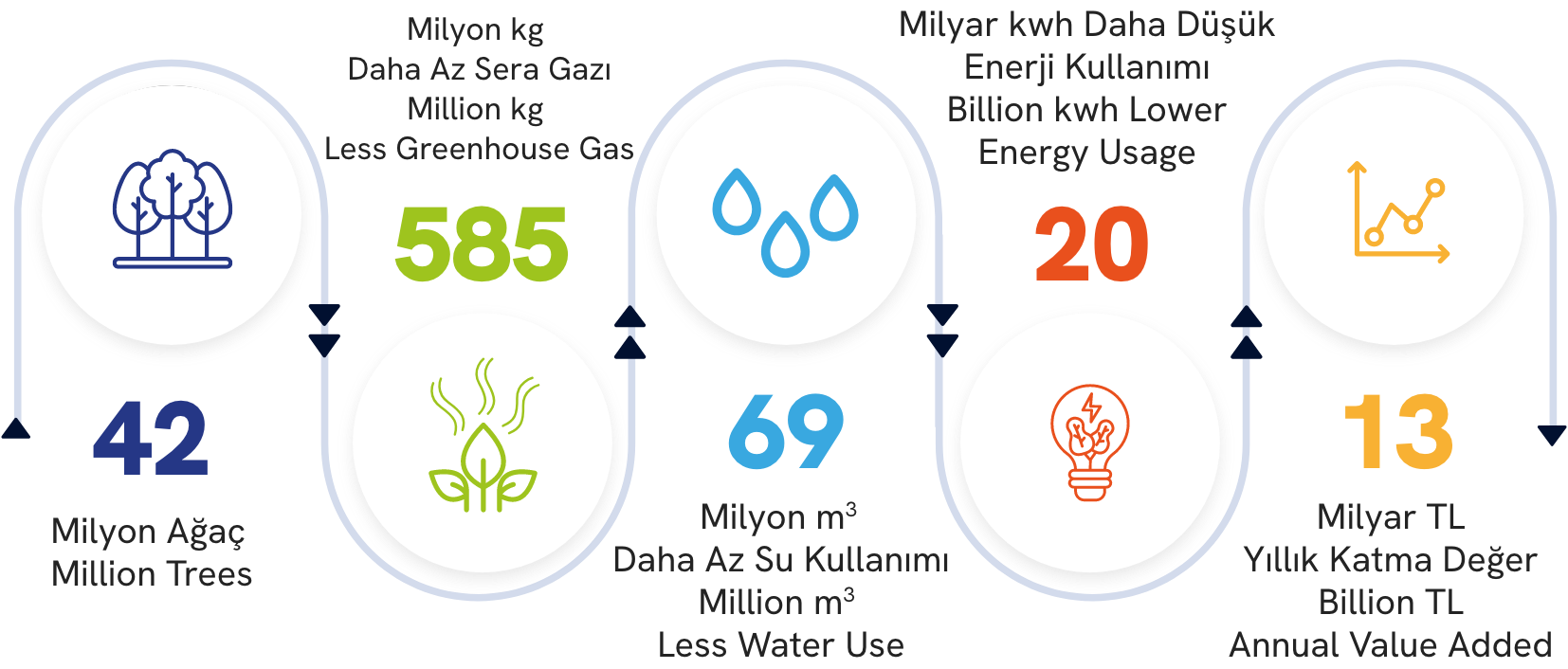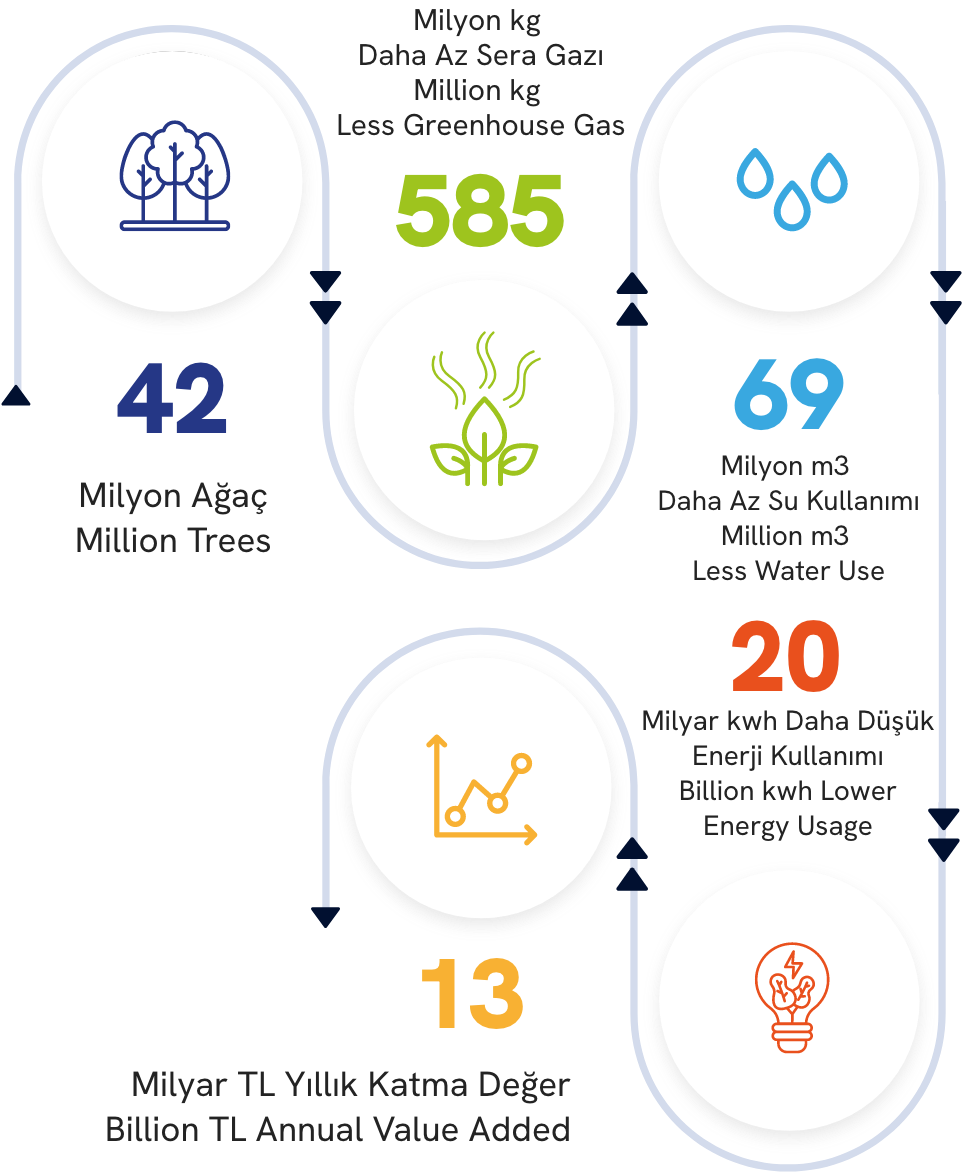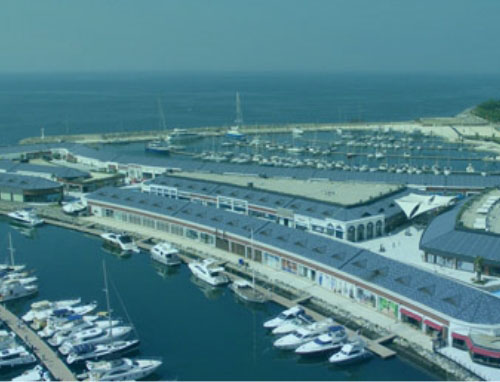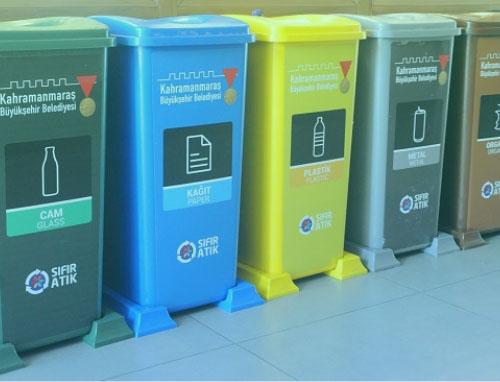Zero Waste
What is Zero Waste?
Zero Waste is defined as a waste management philosophy and a goal to be achieved, aiming to prevent waste, ensure efficient use of resources, prevent or minimize waste formation by evaluating the causes of waste formation, and recycle waste by separating it at its source when it occurs.
Zero waste is an approach that aims to prevent waste generation by changing consumption and production habits and to benefit from the inevitably formed waste by evaluating it according to its structure and including it back into the economic chain.
In this respect, zero waste is a culture of life that goes beyond managing the waste that is formed; it is a way of reviewing and renewing our habits and lifestyles. Therefore, zero waste should be considered as an approach that our world needs, not just in our country or in a region.
Advantages to be gained by taking the zero waste approach as a basis;
-
Increasing productivity,
-
Increased performance due to a clean environment,
-
Reducing costs by preventing waste,
-
Ensuring the reduction of environmental risks,
-
Ensuring that employees have a "sensitive consumer" feeling, as it contributes to the development of environmental protection awareness within the institution,
-
To ensure that the institution has the title of "Environmentally Friendly" in national and international markets, thus increasing its prestige.
What can be gained from 31,000,000 tons of waste per year?













Zero waste
System Setup



























